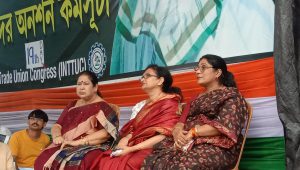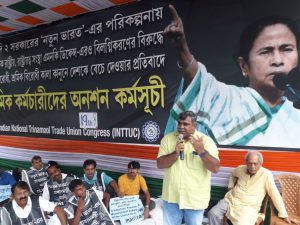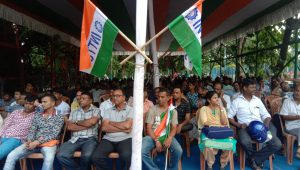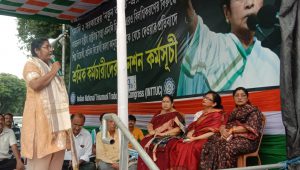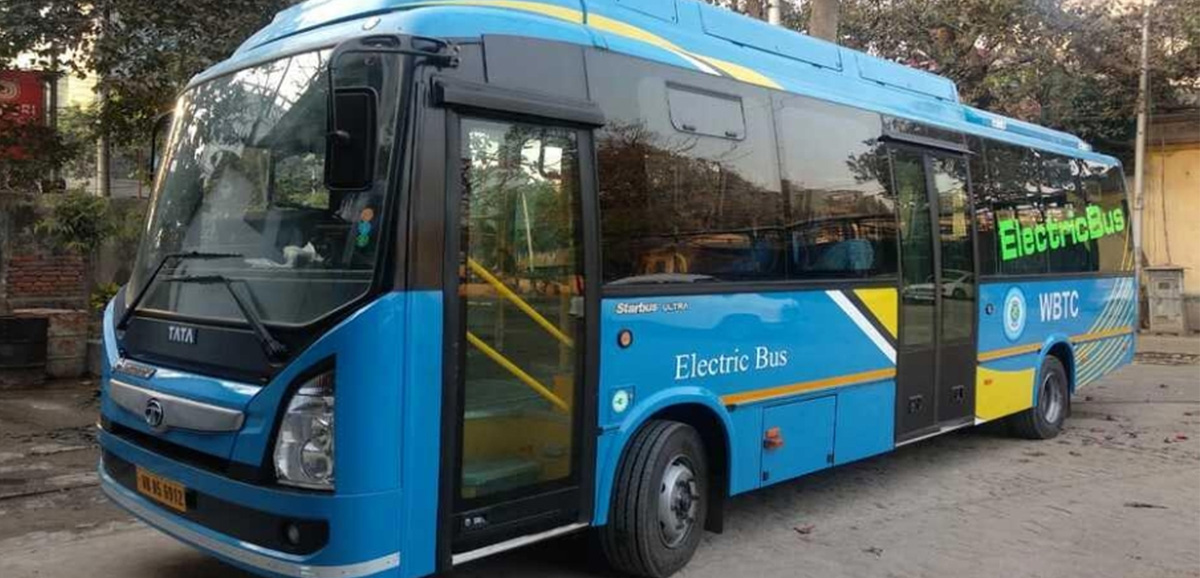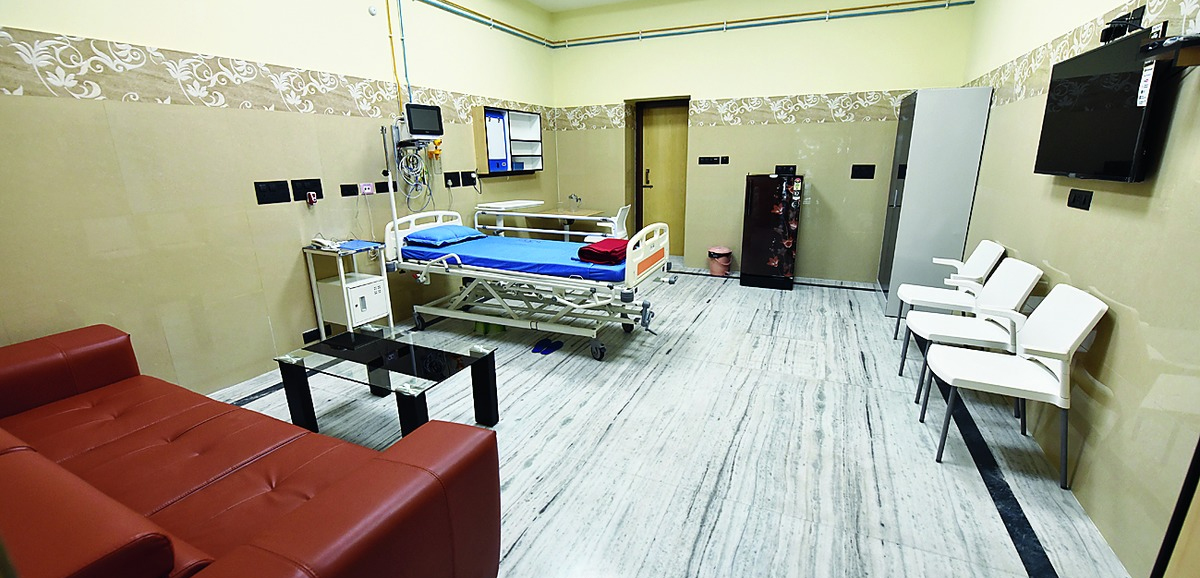National Nutrition Week begins from today. The Trinamool Congress-run Bangla Government has introduced several initiatives to improve the health of children through large-scale nutritional intervention programmes and improving healthcare facilities. It is an ongoing process, with Chief Minister Mamata Banerjee leading the efforts, being the Health Minister as well. As a result of these efforts, both infant mortality rate and maternal mortality rate have come down considerably. Eradication of under-nutrition and malnutrition has also been made one of the primary aims of the internationally-recognised Kanyashree Scheme.
HIGHLIGHTS
Largest child nutrition intervention programme: Bangla has the largest child nutrition intervention under the ICDS programme, reaching out to 76 lakh children below 6 years and 14 lakh pregnant and lactating women spread across 23 districts. Energy-dense protein-rich ready-to-eat food has been introduced for all severely malnourished children. Hot cooked meals are provided to all children and pregnant and lactating mothers.
Special food provisions under Khadya Sathi: As part of the Khadya Sathi Scheme, the Food and Supplies Department has introduced a special coupon for all mothers and babies admitted in Nutrition Rehabilitation Centres, and babies who have been admitted because they are malnourished. Each baby and mother together get 5kg of rice, 2.5kg of fortified atta, 1kg masoor dal and 1kg of Bengal gram against this coupon.
IMR and MMR going down, institutional delivery going up: Both infant mortality rate (IMR) and maternal mortality rates (MMR) across the State have gone down considerably in the past seven-and-half-years. The MMR has reduced from 113 per 1 lakh mothers in 2011 to 101 in 2018, which is much lower than the national average of 130. The IMR has reduced to 25 per 1,000 live births, which is also much lower than the national average of 34. What is also significant is that the State Government has increased institutional delivery from 65 per cent in 2010 to 97.5 per cent in 2018-19.
Mother and Child Hubs: The Health Department has also initiated the process to setting up 14 Mother and Child Hubs (MCH) at different facilities across the State for ensuring qualitative and quantitative improvement in maternal and child services at various hospitals. Out of the 14, nine are operational.
Upgrading of healthcare facilities: The Government has taken up a comprehensive scheme of upgrading maternal, newborn and paediatric services at 68 tertiary and secondary healthcare facilities (that conduct more than 3,000 deliveries in a year) with the aim of providing better treatment to expectant mothers and infants.
Kanyashree: Two of the internationally-recognised Kanyashree Scheme’s six primary objectives deal with nutrition: improving the IMR and MMR by delaying the age of marriage and consequently increasing the age of first birth, and eradicating under-nutrition and malnutrition of female children.
